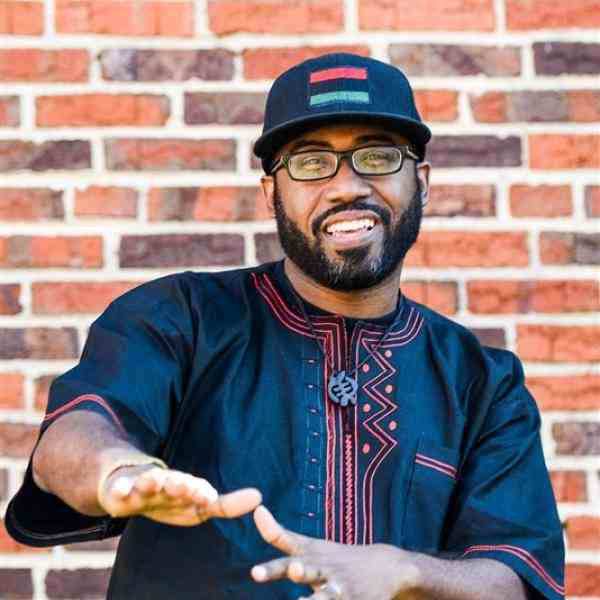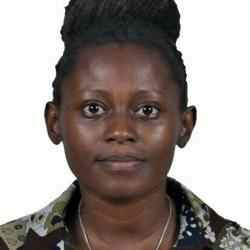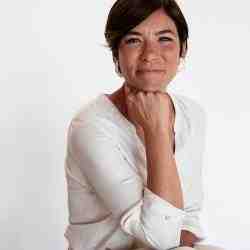Introduction
By engaging the most resilient of Black institutions – the Black Church – Heber Brown III is building a national network of Black-led food ecosystems that bring wealth, health, and power to Black communities across the United States.
The New Idea
To address disenfranchisement and food insecurity in the Black community, Heber is creating a new, alternative, Black-led food ecosystem anchored by the Black Church. From his base in Baltimore, MD, he has modeled a set of practical interventions that Black Churches around the country are now taking up, from hosting community gardens and farmers’ markets to coordinating wholesale purchasing and food distribution. The more that Black Churches and communities can rely on their own systems of nourishment, the less they have to depend on government, charity, and industrial food production – key enablers of our broken food system.
Over the last five years, more than 170 churches have heeded Heber’s invigorating call and have committed funds, land, kitchens, classrooms, and organized congregations in historically red-lined communities as key assets that can be utilized in the creation of Black-led food ecosystems. Now Heber is weaving together a national network of the most robust local nodes and creating “Black foodways” and other lines of support, thus complimenting bottom-up power with national infrastructure and scale. Networked Black churches can then do something that individual churches alone cannot: they can contract with increasing numbers of Black farmers who aspire to grow larger than direct-to-consumer market gardens.
Looking ahead, Heber wants the image of a pastor driving a refrigerated produce truck on a Saturday to be as vivid as the image of a reverend preaching a Sunday sermon. He wants to see Black churches serving up physical as well as spiritual nourishment, and Black farmers looking to the future with optimism. And, together, Black communities around the country stewarding vibrant, locally owned food systems that nourish bodies, respect the earth, and build self-determination, resilience, pride, and joy.
The Problem
According to some estimates, ten million Black Americans experience food insecurity – over three times the rate for white Americans. One reason for this is that Black communities consistently face “crisis level” poverty and a situation Heber and a growing number of social innovators describe as “food apartheid,” a term that underscores the racially discriminatory political structures that affect control of the food system and food access and help make sense of the resulting inequities in health, wealth, and power along racial lines.
Were one to tally the policy decisions that have negatively affected Black communities’ food access and control just in the last century and a half, the list would be long and all-encompassing, including the broken promises of land for Black soldiers who fought in the American Civil War, the 1933 Home Owners Loan Corporation that introduced “redlining maps” and notions that Black communities weren’t credit-worthy, and our industrial food system that prioritizes profits over all else. And while the agriculture economy has grown in the U.S., the number of Black-owned farms has declined – from 14% of the nation’s farms a century ago to just 2% today.
Many organizations address the negative impacts of food apartheid through delivering services and meeting material needs. But as Heber points out, “one of the weaknesses of the ‘service provider approach,’ is that it can replace people’s dependency on the corporate food system with dependency on benevolent nonprofits and NGOs” that, with the best of intentions, do not address the root problem.
The Strategy
Despite legacies of loss and inequality, Heber focuses on the many assets of the Black community, with the Black Church at the top of the list. Heber is a third-generation pastor who for fourteen years led the Pleasant Hope Baptist Church in Baltimore, MD. Early in Heber’s tenure as the youngest reverend there he watched many in his congregation end up in the hospital because of diet-related problems, and he yearned to do something beyond praying with them for their comfort. So, he and his congregation tilled up the front lawn of the church, put in garden beds, and planted fruits and vegetables. Indeed, this experience aligned with Heber’s understanding of the Black Church as the place, throughout American history, where Black communities have had the most agency and autonomy, where Black people have been “freest to speak, share, sing, cry, share, put resources together, and to support each other.”
Heber took his work to another level in the spring of 2015, a time now referred to by many as the “Baltimore Uprising” due to widespread unrest in the wake of the death of Freddie Gray, a Black resident, in police custody. Heber watched city services and non-profits retreat during the month of protests and demonstrations. Public transportation stopped. When the public schools closed, 80,000 Black children lost access to free breakfast and lunch. “Support that we needed was just not there,” he observed. “Charity had failed us; it was time for us to do something for ourselves.” And a few raised garden beds in front of one church wasn’t nearly enough. Heber called his farmer friends and his pastor friends. Churches became community kitchens and parishioners delivered meals. Pastors hosted farmers’ markets at church on Saturdays while preaching on Sunday about self-care and food sovereignty. The Black Church Food Security Network, an organization that Heber now leads full-time, was born.
By the next growing season, ten more Baltimore congregations had committed resources, established community gardens, and joined the Black Church Food Security Network (BCFSN). By 2018, Heber had formally organized and launched a national appeal to other churches and farmers to join the network. Depending on a church’s capacity and needs, BCFSN offers $500 grants to start a garden program, advice on how to host a successful farmers’ market, strategic growing plans based on a particular church’s USDA growing zone, and support in starting food preservation classes or small-scale food businesses. Heber hopes to offer $50,000 grants to churches that are ready to invest in transportation and cold storage, for example, and serve as nodes in the growing national network.
To ensure these efforts are sustainable, Heber invites churches to align their financial practices with their values by directly funding this work. After payroll and facilities, food is often a church’s biggest expense. Rather than spend that at Walmart or Costco, BCFSN can help churches put funds to work in the community. And rather than send money around the world on missions, churches can support food sovereignty right at home. Five churches already commit annual support to BCFSN in their budgets.
Heber is adamant that the work grow beyond church gardens. The antidote to food apartheid isn’t a garden patch; it’s local control over the means of producing and distributing healthy food. It’s a food system where all involved are working in a coordinated way towards a shared purpose. And it’s a national network of support coordinating extra efforts to link and lift those local systems. The effort isn’t just matchmaking between farmers and churches. As Heber puts it, “we’re working hard to influence Black farmers to prioritize Black churches and see these anchor institutions as viable options for strategic and transformative partnership.”
As for fellow pastors, Heber invites them to extend their idea of mission. His appeal starts, "similar to the biblical story of Noah, we believe that God has called us to help build the infrastructure needed to withstand the ramifications of climate change, food scarcity, and white supremacy by organizing Black churches to serve as food hubs, food distributors, and economic engines for more just and locally managed supply chains." Heber might also remind church leaders that at various times during the continuous Black Freedom Struggle, congregations have often made their assets and resources available for social justice.
He is now focused on stitching together geographically strategic chapters in the BCFSN into a truly national infrastructure. His current budget includes line items like refrigerated trucks and sprinter vans for local deliveries as well as national operations managers. This is critical as the next phase of his model will see him refining these inter-state, node-to-node operations and logistics to bring scale to all these efforts. For example, Heber and the BCFSN will work to enable mid-sized farmers to access bigger markets, like the sweet potato farmer who may be too small to sell to big grocery store chains, but big enough that he shouldn’t have to sell potatoes by the pound at his farm gate. Enter the BCFSN and this farmer can have one contract at the beginning of the season, one sale at harvest time, and then the buyer, the BCFSN, can take on the transportation, storage, distribution, and sales of his crop. The truck that arrives in Baltimore with sweet potatoes can then return to the Carolinas, for example, filled with fresh crabs from the Chesapeake Bay.
That is how local food systems will come together as a "foodway," the first of which will stretch along the East Coast's Interstate-95 corridor, from Florida up through Baltimore, New York, and Boston. Heber estimates that a Black-led food supply chain will be capable of transporting at least 100,000 pounds of produce and value-added food items to communities through BCFSN member churches per year.
Looking ahead, he expects the number of Black Churches in the network to reach 250 in 2023. Ten years out, or sooner, he envisions Black food ecosystems across the northeast, southeast and parts of the Midwest anchored by African American churches in partnership with Black farmers. On top of that, any church, mosque, synagogue, or community group can tap the network. Through all this Heber draws on the resilience, ingenuity, and pride of the Black Church to help everyone – from Black farmers to farmers market shoppers to all people in need – not just to critique current systems but, as he puts it, “create what should be.”
The Person
Heber grew up in Baltimore and in the Church. While he saw many family members struggle with poverty and addiction, he feels fortunate that his parents and grandparents helped him view his surroundings – including his relatives – through a lens of health inequity rather than personal failure. This early understanding that powerful actors and systems had failed the people he loved ignited in young Heber a “righteous indignation against every force responsible for robbing people of their opportunity to reach their highest potential.”
Shortly after graduating from Morgan State University in Baltimore, Heber began working for a youth violence prevention program and mentoring initiative at Johns Hopkins University. “I loved working with the young people because I was from the same neighborhood and in many ways they reminded me of myself. However, I was not able to engage and connect with them the way I wanted to because of the dictates of my supervisors who were not African American and did not live in the same neighborhood as the children. There was a cultural disconnect and I felt like my voice was muted. The power dynamics in that experience were very difficult for me and helped to hone my resolve to find a better way to serve my community.”
Heber sought out other roles serving local families and young people, traveled to West Africa, and attended seminary. He launched a freedom school in Baltimore to increase racial self-esteem through a blend of African culture, civil rights history, and non-denominational “Sunday school” values. And he also established an organization of his own focused on consulting, training, and speaking engagements. Later, he organized Young Clergy for Social Change, a group that brought together youth ministers from Baltimore to address social injustices and urgent community needs.
At age 28, Heber was elected by the Pleasant Hope Baptist Church community to be its youngest-ever senior pastor. Fourteen years later, in May 2022, he preached his last sermon at Pleasant Hope to focus full-time on leading BCFSN. Leaving this role has been bittersweet. He has attended funerals of elders who took a chance on him early on, and many births and marriages of people he has watched set down roots and blossom in the community. But Heber says, “it’s an ‘all-in’ moment for me professionally and personally. It was a leap of faith to leave my vocation at my church, but it’s something that I felt I had to do right now.”



